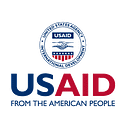CATALYZE expanding early childhood development in South Africa with Kaizenvest
CATALYZE EduFinance is partnering with Kaizenvest to expand and improve early childhood development (ECD) education serving lower middle to middle income families. Kaizenvest will establish a debt fund that lends to ECD centers to improve infrastructure and meet their working capital needs. In partnership with local institutions, Kaizenvest will arrange services to ECD providers that help to improve learning outcomes.
The Challenge
The South African education sector stands out from other African countries in that the government spends 20% of the annual budget on education. Although the country has made significant strides in expanding school enrolment and attendance, learning outcomes remain doggedly low. There are also stark inequalities by race, gender and wealth.
South Africa has around 13 million learners attending over 25,000 schools between grades k-12. Fewer than 5% of the students attend non-state schools, compared to 20–30% in other African or other middle-income countries. However, non-state participation in ECD is substantial compared to primary and secondary education. The 0–4-year-old population in South Africa is around 5.8 million; of which 2.2 million (around 40%) are attending ECD centers. The ECD sector is largely fragmented with little standardization. Approximately half of the 20,000 ECD sites (including daycare centers, crèches, playgroups, and pre-primary schools) across South Africa are registered. However, a new law is expected that will make ECD compulsory, driving more investment to this segment. In 2021, ECD will move into the Department of Basic Education and will be formalized, creating an opportunity for consolidation and standardization for new chains to enter this market. Investments in ECD sector are estimated to be a US$50 million opportunity.
Although South Africa already has many private ECD players, current models need to demonstrate both scale and quality at lower cost. Access to capital and training expertise and less burdensome regulations may help the ECD sector scale-up quality models.
Our Approach
The Kaizenvest Impact Lending Consortium for Affordable (non-state) Learning Providers (ALPs) in South Africa aims to support ECD organizations to provide high-quality services at an accessible price point for lower-middle and middle-income families. The consortium will draw on the expertise of the partners to provide blended finance for the expansion and quality improvement of ALPs that are not currently well-served by commercial lenders, with a focus on financial sustainability. Kaizenvest uses a outcomes-based lending model (‘rewards and recognition’) that has been successfully implemented through their partner (Varthana) in India. This model will be adapted for the South African ECD sector. An ECD center that borrows from Kaizenvest and meets pre-agreed learning outcomes targets will be ‘rewarded’ with financial incentives, usually in the form of interest and/or principal rebates on the loans. These institutions are also publicly ‘recognized’ through promotional materials that encourage uptake of improved ECD teaching techniques at other nearby centers.
Kaizenvest’s ’value-added’ debt model ensures borrowers also gain access to pre-selected local service providers that offer quality technical services to help these centers improve learning outcomes. Center owners have a direct financial incentive (the ‘reward’) to use these services and improve learning outcomes. Kaizenvest’s approach in South Africa can potentially be scaled-up in other Sub-Saharan African countries.
